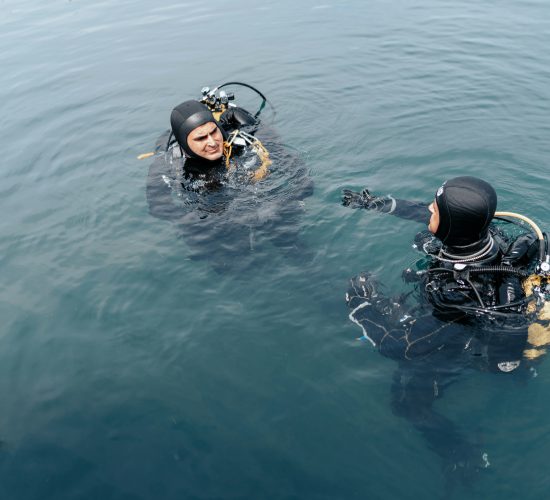The Role of Mathematics in Marine Geochemistry: A Necessary Skill?

Marine geochemistry, the study of the chemical composition of ocean waters, aquatic organisms, and sediments, is a rapidly evolving field with significant implications for our understanding of Earth’s systems. While marine geochemists traditionally rely on wet-lab techniques and field-based observations, mathematics’s role in analyzing and interpreting data is an often overlooked aspect of the field. From fundamental statistical analysis to complex modeling, mathematics has become essential for marine geochemists. But is it a “necessary” skill? In this article, we explore the pivotal role of mathematics in marine geochemistry, how it’s applied, and why it’s indispensable for those wishing to succeed in this scientific domain.
Understanding Marine Geochemistry: A Quick Overview
Marine geochemistry involves studying the chemical interactions between the Earth’s oceans and solid Earth, including carbon, nitrogen, and sulfur cycling processes in aquatic systems. Researchers in this field investigate how these elements move through the ocean, atmosphere, and sediments and their role in regulating climate, supporting marine life, and maintaining oceanic ecosystems.
In studying these processes, marine geochemists often gather vast amounts of data, ranging from the chemical composition of seawater to isotopic ratios in marine sediments. This data can provide limited insight into the environmental and chemical processes if not correctly interpreted. Mathematics provides the tools to analyze, model, and draw conclusions from such complex datasets.
The Mathematics Behind Marine Geochemistry
One of the foundational skills for marine geochemists is the ability to interpret data accurately. Seawater samples, sediment cores, and biological tissues are subjected to various chemical tests, generating large datasets. Here, mathematical tools like basic statistics (mean, median, variance) and more advanced techniques like regression analysis and principal component analysis (PCA) are crucial for uncovering data trends, correlations, and outliers.
For example, geochemists may need to quantify concentrations at different depths or times when analyzing water samples for trace metals or isotopic ratios. Without mathematical analysis, it would be challenging to distinguish between random fluctuations and meaningful patterns. Advanced statistical methods, including hypothesis testing and multivariate analysis, help identify significant changes in chemical composition over time or space, thus enabling marine geochemists to make predictions about environmental conditions.
Mass Balance Equations
Mass balance, a fundamental concept in marine geochemistry, involves accounting for the input, output, and accumulation of chemical elements in aquatic systems. The general idea is that the amount of a component entering a system (such as ocean currents) must equal the amount leaving (via sedimentation or biological uptake), plus any accumulation within the system (such as in marine organisms or sediments).
Kinetic and Thermodynamic Modeling
Kinetics and thermodynamics are the backbone of many processes in marine geochemistry. For example, the rate at which minerals dissolve in seawater or how chemical reactions evolve are governed by specific kinetic equations. Understanding the rate of these reactions allows scientists to predict how marine environments will respond to temperature, pressure, and chemical composition changes.
On the other hand, thermal modeling involves calculating the equilibrium states of various chemical reactions in the ocean. Marine geochemists use these models to predict the solubility of minerals or the availability of nutrients in aquatic ecosystems, influencing everything from nutrient cycling to the health of coral reefs. These models rely heavily on advanced mathematics, including differential equations and equilibrium constant calculations, to simulate how these systems will behave under varying conditions.
Geochemical Cycles and Modeling
The Earth’s geochemical cycles—such as the carbon, nitrogen, or sulfur cycles—describe how elements move through different reservoirs, including the atmosphere, oceans, and land. Understanding these cycles requires mathematical models to simulate the flux of materials between reservoirs and predict how these systems will respond to external factors like pollution or climate change.
Marine geochemists use various mathematical techniques to model these cycles. For instance, differential equations describe the exchange rates between the atmosphere and the ocean or between ocean water and marine organisms. These models can then predict long-term trends, such as the future acidity of oceans under increasing atmospheric CO2 concentrations. Such insights are essential for assessing the potential impacts of human activities on marine ecosystems and the climate.
Why Mathematics is a Necessary Skill in Marine Geochemistry
Given the complex and data-driven nature of marine geochemistry, mathematics has become more than just a helpful tool; it is an essential skill for anyone in the field. Here are some reasons why:
Handling Big Data
The sheer volume of data generated in marine geochemistry research, especially with advances in analytical technologies like mass spectrometry or remote sensing, requires solid mathematical and computational skills. Whether analyzing sensor data from oceanographic cruises or evaluating data from satellite imagery, mathematical proficiency helps researchers handle and interpret these large datasets effectively.
Big data applications often rely on computational models that simulate and predict marine system behavior under various conditions. Understanding the mathematical models that drive these simulations allows scientists to interpret their results better and refine hypotheses. These tools are necessary for researchers to draw meaningful conclusions from vast and complex datasets.
Predictive Power
Mathematical models are essential for predicting future marine geochemical conditions. For example, models that predict how climate change will impact ocean acidity rely on mathematical equations that account for variables like atmospheric CO2 levels, ocean circulation patterns, and the solubility of carbon in seawater. These models are necessary to accurately predict future scenarios, which is crucial for policy-making and environmental management.
Interdisciplinary Collaboration
Marine geochemistry is interdisciplinary, drawing from disciplines like chemistry, biology, physics, and geology. Many cutting-edge studies in marine geochemistry involve collaboration with other scientific areas, such as climate science, ecology, and oceanography. Mathematics is the common language that enables geochemists to collaborate effectively with experts from different fields, making it an indispensable skill for interdisciplinary research.